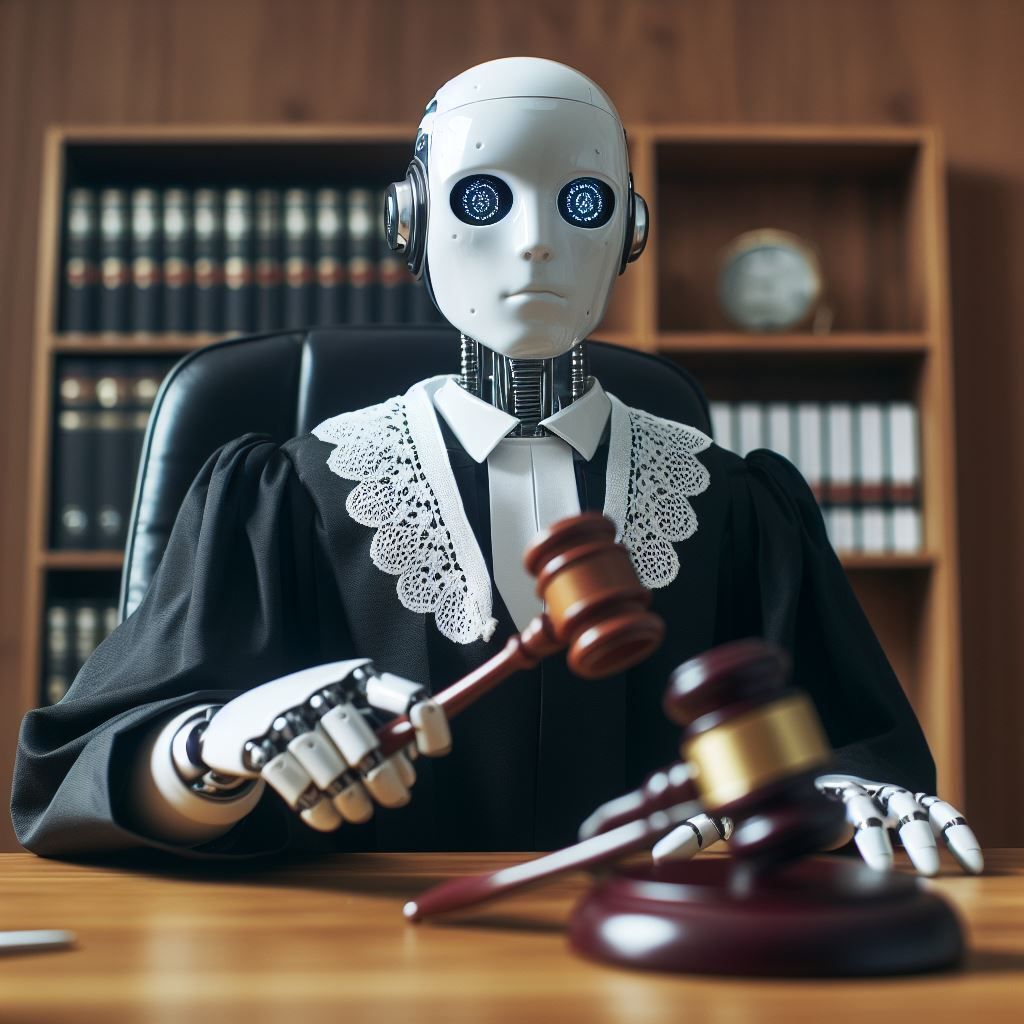- lunch with AI (Health with AI tec)
- Posts
- Does AI knows when you are going to die!
Does AI knows when you are going to die!
Will Ai determine your guilt?

What are our lunch choices today?
Pick your favored bitesize AI and Robotics
information for the day.
Dow | 37,440.34+10.15 (0.027%)Jan 4, |
S&P500 | 4,688.68−16.13 (0.34%)Jan 4, |
Tesla inc. (TLSA) | 237.93 USD−0.52 (0.22%)Closed: Jan 4, |
Microsoft (MSFT) | 367.94 USD−2.66 (0.72%)Closed: Jan 4 |
NVIDIA Corp | 479.98 USD+4.29 (0.90%)Closed: Jan 4, |
Appetizer To wet your appetite Deep Fake What is real?
In the current era of advanced technology and digital manipulation, the line between reality and fiction is becoming increasingly blurred. The proliferation of fake images and videos, particularly on social media platforms, has made it difficult for individuals to discern fact from fiction. These fabricated visuals, often created using sophisticated artificial intelligence tools, can be quite convincing and have the potential to mislead the public and cause widespread confusion.
In the upcoming year, it is anticipated that the production and dissemination of such fake content will only continue to grow. As these tools become more accessible and user-friendly, the barrier to entry for creating convincing false images and videos is significantly lowered. This development is both exciting and alarming, as it presents both opportunities for creative expression and the potential for harmful misinformation. It is more important than ever to approach online content with a critical eye, and to take the time to verify the authenticity of the information we consume.
In light of this, the example provided of a fake image featuring a legless depiction of Epstein serves as a reminder of the need for caution when engaging with online content. In the coming week, a more in-depth discussion on the topic of fake images, specifically those featuring non-existent influencers, will be provided. This discussion will delve further into the implications of such content and explore potential strategies for mitigating its impact.

Main Course: AI law U.S Supreme Court

In his recent annual report, U.S. Supreme Court Chief Justice John Roberts discussed the potential impact of artificial intelligence (AI) on the legal system. While acknowledging the benefits that AI can bring, such as increasing access to key information for lawyers and non-lawyers alike, he also emphasized the need for caution and humility when integrating this technology into the courts.
The Chief Justice pointed out that AI has the potential to make legal services more accessible and affordable for those who cannot afford an attorney. However, he also cautioned that AI could pose risks to privacy interests and dehumanize the law if not used carefully. He cited an example of a recent case where lawyers inadvertently used non-existent case citations generated by AI, emphasizing the importance of approaching the use of AI with caution.
This is the direction AI is taking America, which many people are not paying attention to. At this moment, lawyers and judges are utilizing AI even though it is making mistakes. Moving forward, AI will have fewer of what they call hallucinations, making fewer mistakes, and the legal system will rely on it more and more. It is quite probable that in the not-so-distant future, you will go to court to face a machine of some kind to determine your guilt or innocence.
Dessert: AI Death Calculator
Do you want to know when you’re going to die?
CAN AI predict your final day on earth? Does AI have a Christal ball? Does AI know that much about us?
Step right up to the fascinating world of the AI Death Calculator – a tool that's not just any ordinary crystal ball, but a cutting-edge creation that uses artificial intelligence to predict the very date of your demise! Crafted by brilliant minds in Denmark and the United States, this "doom calculator" boasts an impressive 78% accuracy rate, making it a captivating blend of science and speculation.
To unveil the secrets of your future, simply feed the calculator with your age, health details, education, job, income, and other life events, and watch the AI work its magic. Brace yourself for the intriguing yet potentially unsettling responses that might come your way.
While the concept of the AI Death Calculator might sound like it's ripped straight from the pages of a sci-fi thriller, it's very much a reality that's causing a stir not only in the realm of technology but beyond. As with any prediction, it's wise to take the results with a grain of salt, recognizing that life is a journey filled with unexpected twists and turns.
In conclusion, the AI Death Calculator stands as a mesmerizing and somewhat eerie testament to the incredible capabilities of artificial intelligence. Whether you dare to take a peek into your future or not is entirely your call, but one thing's certain: it's a tool that's bound to ignite lively conversations and spirited debates wherever it goes!
Wait, did I say AI Death Calculator? My apologies; I must have been daydreaming! Let's shift our focus to the incredible Life2Vec AI. Picture this: it's like a crystal ball, but instead of predicting your love life, it's in the business of foreseeing your lifespan. And let me tell you, it's become the talk of the town in the realms of AI and healthcare. It's not just a tool; it's a conversation starter that can add a dash of intrigue to any gathering! DO YOU WANT TO KNOW?
Tesla Optimus Gen 2 Robot.
DeepFake is a problem and it will get worse.
The video discusses the rising phenomenon of deepfake, AI-generated videos that swap the face and expressions of one person onto another and their implications. Deepfakes started as harmless fun but have evolved to pose serious threats, including violation of people's dignity, threat to journalism, and potential for scams, heists, and political manipulation. While AI can be used to spot deepfakes, vigilance and awareness are still necessary to identify them. The video encourages viewers to be cautious and look for giveaways in deepfake videos.
How deepfake videos are creating real problems for celebrities
Disclaimer: None of the information here is financial advice. This newsletter is for informational purposes only and not to be used as investment advice or a solicitation to buy or sell any assets. Any and all financial decisions you make should be carefully researched on your own or discussed with a financial advisor.
Reply